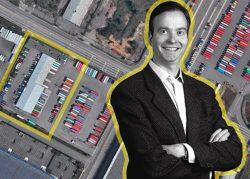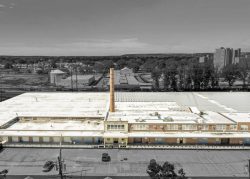A pair of developers landed close to $100 million in floating-rate debt to refinance a newly completed multifamily property in Elizabeth, New Jersey.
LeCesse Development Corporation and MAS Development Group secured $97.3 million from an entity controlled by Argentic Investment Management, according to JLL, which represented the borrowers. The five-year, senior floating-rate loan is secured by Vinty, a 267-unit complex at 100 Union Street.
The mixed-use development opened last year. In addition to the residential space, the building also includes 32,000 square feet of commercial and retail space, partially occupied by a food hall and a branch of Northfield Bank, which signed on at the property last month. Tenant amenities include a fitness center, pool, outdoor kitchen, outdoor theater, golf simulator and dog park.
The project, which is in an Opportunity Zone, sits a block southwest of the Elizabeth New Jersey Transit station, which provides direct service to Newark and Midtown Manhattan. Units range from 600 to 1,600 square feet, according to Apartments.com, which shows that monthly asking rents start at $2,200 and go as high as $3,900.
In a statement, Sal Garcia, principal of MAS Development, called Elizabeth “the next big city to experience revitalization in New Jersey.”
A JLL team led by Michael Klein and Steven Klein arranged the financing on behalf of the developers. Neither LeCesse nor Argentic responded to a request for comment.
The rental market hasn’t been particularly friendly to Elizabeth landlords, whose pre-1990 buildings were until recently subject to a decades-old rent-control policy that only allowed them to raise rents by $20 or 3 percent annually, whichever was lower (almost always the $20).
At the end of last year, however, landlords of these older buildings received a reprieve when the City Council voted to partially eliminate the cap, removing the $20 provision but keeping the 3 percent limit in place for most buildings.
At the end of the year, the average rent in the city was roughly $1,500, meaning the rent increase cap on an average apartment would be $45 — not much, but more than double what it could’ve been under the previous policy. As a new building, 100 Union Street will not be subject to rent control.
This article has been updated with a statement from MAS Development and additional details about which buildings in Elizabeth are subject to rent control. Also, a previous version of the story misstated the length of the loan. It is five years, not two.
Read more



